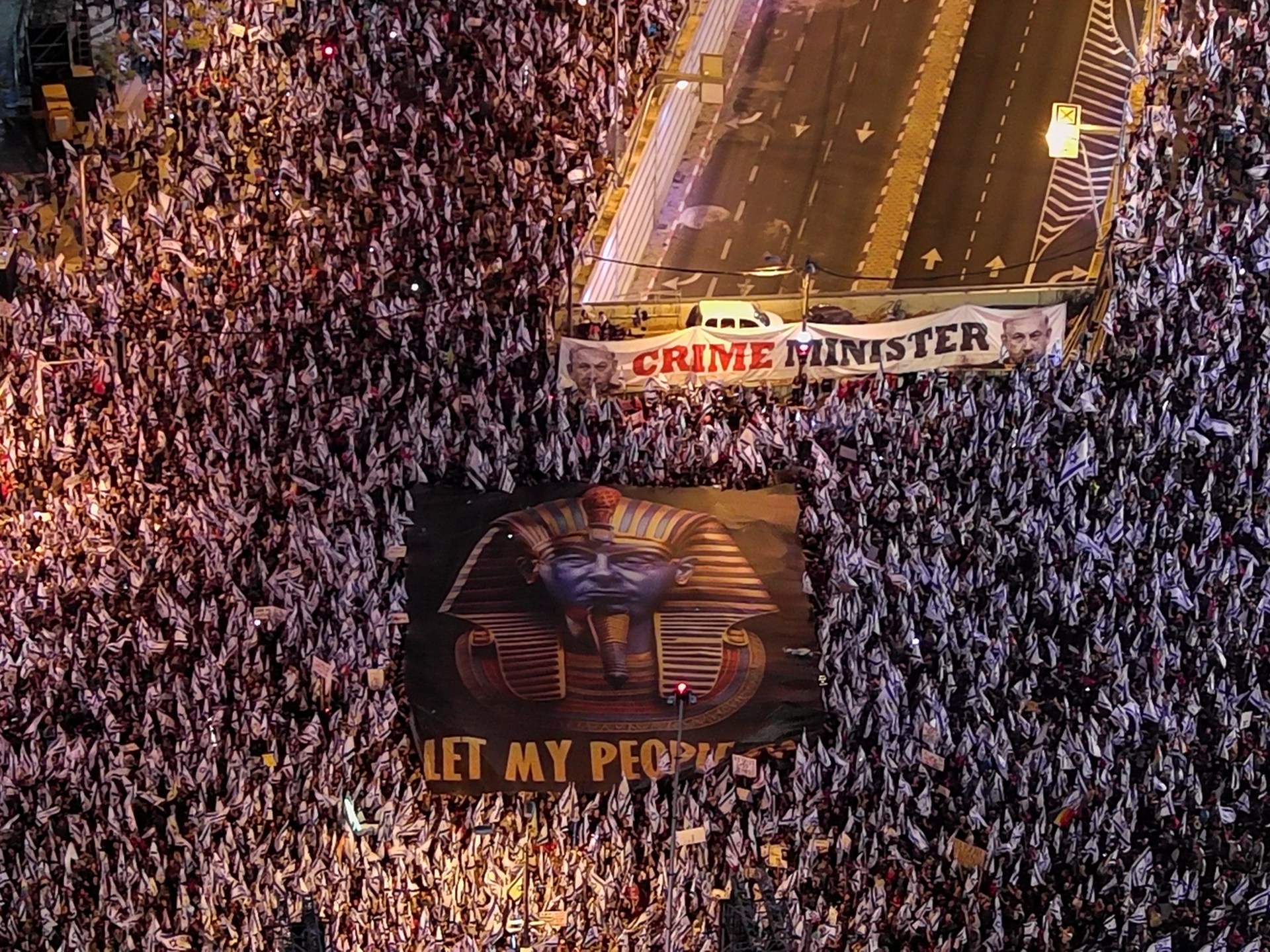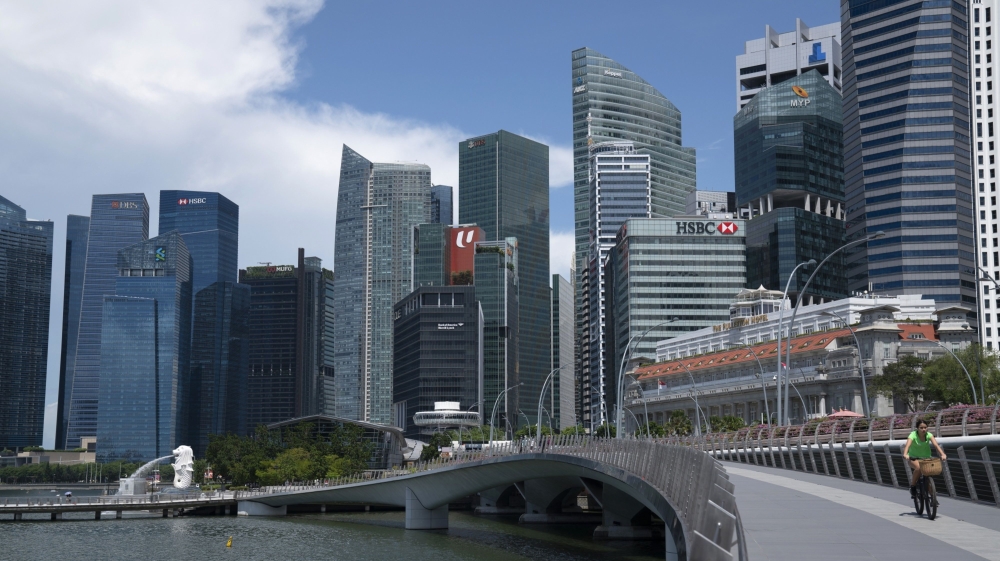Thousands join Israeli judicial protests amid soaring tensions
Tens of thousands of people once again join protests in Tel Aviv against the government’s proposed judicial overhaul.
Tens of thousands of Israelis have joined another day of protests against Prime Minister Benjamin Netanyahu’s plans to overhaul the judiciary, despite soaring tensions after two deadly attacks a day earlier.
The latest in a series of protests against the plans, which were paused last month in the face of a wave of strikes and mass demonstrations, came on Saturday amid surging violence in Israel and the occupied Palestinian territories.
Around Al-Aqsa Mosque in Jerusalem, tens of thousands of worshippers were expected for evening prayers amid concerns about a possible repeat of nighttime Israeli police raids this week that were followed by rocket barrages into Israel and Israeli air attacks on Gaza and southern Lebanon.
Israelis were also on edge after a car-ramming in Tel Aviv on Friday that killed an Italian man and wounded five other tourists, hours after a shooting attack killed two Israeli sisters and wounded their mother near an illegal Israeli settlement in the occupied West Bank.
Netanyahu has mobilised border police reservists and ordered the army to reinforce security positions to head off possible trouble, amid calls for calm from the United Nations, the European Union and the United States.
In central Tel Aviv, crowds waving the blue and white Israeli flags that have become a hallmark of the protests during the past three months gathered in a show of defiance against plans they see as an existential threat to Israeli democracy.
The demonstration began with a prayer for the victims of the attacks a day earlier but protesters said they would not be put off by security worries.
People ignore government calls
Al Jazeera’s Resul Serdar, reporting from Tel Aviv, said that some 145,000 people were expected to attend the protest.
“There were calls and warnings issued by the government asking people not to attend the protest today due to the security concerns,” he said.
“However, protesters say that the government is using security as an excuse and it is not going to stop them from taking to streets,” he said.
“They say that it is a historic moment for the country and they are here to save democracy in Israel.”
The judicial proposals, which would give the government effective control over the appointment of Supreme Court judges and allow parliament to overrule many decisions of the court, have caused one of the biggest domestic crises in Israel’s recent history.
Hundreds of thousands of demonstrators, including army reservists, business leaders, members of Israel’s tech industry and leading academics have taken part, facing off against supporters of Netanyahu’s far-right religious-nationalist coalition.
Marwan Bishara, Al Jazeera’s senior political analyst, said that the growing crisis is further isolating Netanyahu.
He said that he is losing control of his government and was being subjected to “blackmail” by his coalition partners.
“He is losing big time in the polls in Israel. He is also losing the security situation as well as so-called stability and prosperity in the country.”
The government, which has accused activist judges of increasingly usurping the role of parliament, said the overhaul is needed to restore a proper balance between the judiciary and elected politicians.
Critics have said it will remove some of the vital checks and balances underpinning a democratic state and hand unchecked power to the government.
Before the protests, police had urged people to leave roads clear to allow emergency services to move freely following Friday’s car-ramming on a popular shoreline promenade in Tel Aviv.




